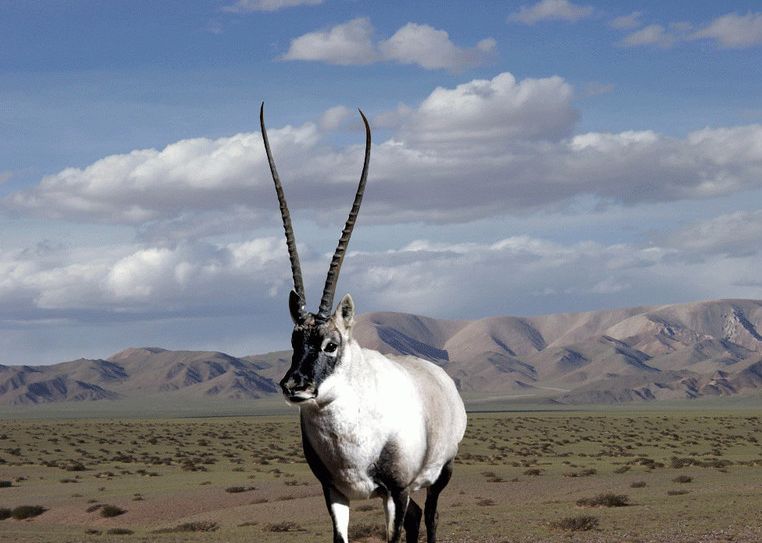A few days ago, on October 6th, an internet user posted photos on Weibo showing two off-road vehicles chasing down a herd of Tibetan antelopes in the Gobi Desert. The accompanying post claimed that some of the animals had been killed or wounded.
On October 8th the forestry department of the Tibetan Autonomous Region released the results of their investigation into this incident, and disclosed that each of the seven tourists involved had been fined 15,000 RMB, for a total of 105,000 RMB in fines.
According to the investigation the group of selfish tourists entered a restricted area of the Siling Co national nature reserve, in order to take photos of the antelopes. They chased a group of antelopes in their car for more than a minute, an action which could easily have resulted in severe injuries or casualties. Fortunately, rangers carefully checked the surrounding area of more than 300 square kilometers and did not find any injured or dead antelopes.
Justice has been done in this case, but what should we learn from this incident, asks a report in the Shanghai paper Xin Ming Yan? The answer, says the paper, is not to disturb endangered wildlife. This is not simply a rule, but also common sense. Close-up photography is a disturbance to wildlife, and disturbance equals hurt. Animals of a timid nature like Tibetan antelopes will run to the limits of their speed when they are alarmed and ultimately may die of heart failure or pulmonary rupture.
Tibetan antelopes are unfortunately a rare species, endangered by poaching driven by a demand for their wool. As China gradually enhances the protection of this species, their variety and amount has been increasing again over the past few years. This good trend mainly relies on patrollers who work hard day and night. Currently, Tibetan antelopes are a first class national protected animal and three nature reserves have been established for them in China.




